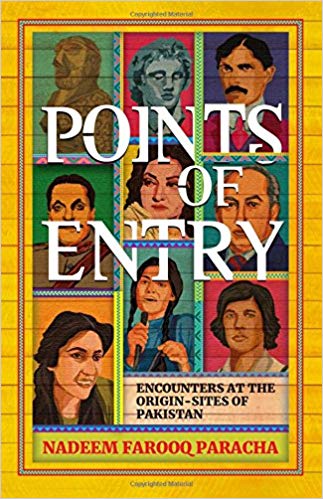I began reading Nadeem Farooq Paracha’s Points of Entry once I was sensibly strapped into the seat of my plane, expecting to take no longer than the length of my short flight to finish the slim book. I remember being rather pleased with myself that morning at having eked out this reading schedule. And I could not, of course, have been more wrong, or my timing more off the mark.
Points of Entry gives the impression of being a quick read. It is not. It is certainly though an easy one, with Paracha writing in a lucid, conversational way that draws the reader in immediately. This happens often with fiction (that one likes); non-fiction can take considerably longer. Not so the case with Points of Entry. For this perhaps intended effect, Paracha employs a clever trope—using personal anecdotes from his clearly full and interesting life, he later segues into little known narratives on Pakistan’s complex history. One comes for the storytelling, and stays for the factual chronicling, if you will. This begins with the timeline, a chronology of Pakistan’s history since 1947 that juxtaposes those elements that we are more familiar with, with socio-cultural developments that occurred at the same time. Minutes into the book, I was reaching for my diary and pen to note places, people and moments that I was not familiar with, and had to look up when my flight landed.
Paracha begins with his first encounter with the Khyber Pass, recounting a childhood journey with his mother and sister to Afghanistan, where his father, a journalist, was then based. This appears to be his earliest reckoning with questions of what it means to be a Pakistani, and indeed, who is a Pakistani. Rather precocious for a five year old, you would think. At roughly the same age many years later, I was most likely bawling in the decidedly more common pursuit of not meeting my hourly snack quota.

